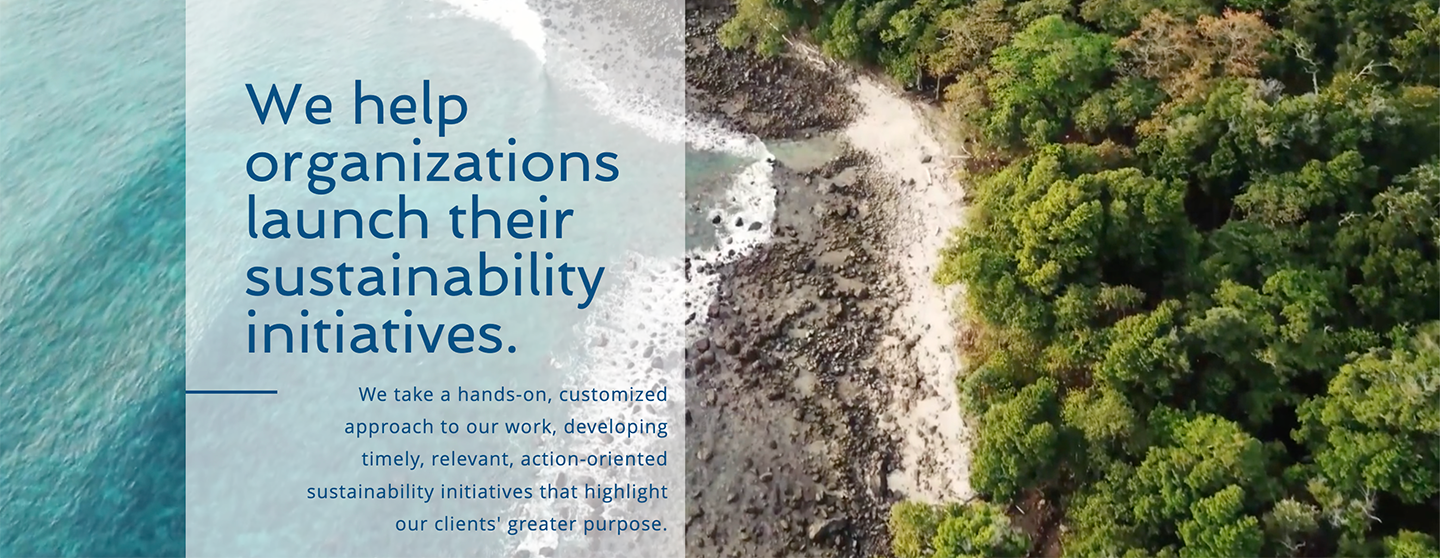

Planet+Purpose Solutions

South Carolina, United States
November 2021
Environmental consulting
Service with Minor Environmental Footprint
United States
Planet+Purpose Solutions, PBC is a women-led, boutique B-Corp Certified consulting practice that provides strategic guidance to management teams on targeted sustainability initiatives to advance core business objectives and create positive impact. Since 2015, we have been working to build brand awareness by connecting our clients to their purpose and their purpose to consumers through authentic action. Our experience spans the outdoor, fishing, surf, eyewear, apparel, beauty, pet, natural products and logistics industries, as well as cultural institutions and private equity. Our team has extensive experience helping clients identify, prioritize, implement and communicate sustainable business practices that are aligned with international frameworks including: • B Corp Certifications • EcoVadis Ratings • Climate Neutral Certifications • Global Reporting Initiative • U.N. Global Compact, Sustainable Development Goals, Principles for Responsible Investment and more We support companies with research and implementation of circular economy initiatives, and to establish carbon emissions, single-use plastic and broader waste reduction goals. We are ocean advocates with an extensive network and expertise related to plastic pollution and single-use plastic packaging policy and altern
Overall B Impact Score
Governance 18.4
Governance evaluates a company's overall mission, engagement around its social/environmental impact, ethics, and transparency. This section also evaluates the ability of a company to protect their mission and formally consider stakeholders in decision making through their corporate structure (e.g. benefit corporation) or corporate governing documents.
What is this? A company with an Impact Business Model is intentionally designed to create a specific positive outcome for one of its stakeholders - such as workers, community, environment, or customers.
Workers 25.2
Workers evaluates a company’s contributions to its employees’ financial security, health & safety, wellness, career development, and engagement & satisfaction. In addition, this section recognizes business models designed to benefit workers, such as companies that are at least 40% owned by non-executive employees and those that have workforce development programs to support individuals with barriers to employment.
Community 29.2
Community evaluates a company’s engagement with and impact on the communities in which it operates, hires from, and sources from. Topics include diversity, equity & inclusion, economic impact, civic engagement, charitable giving, and supply chain management. In addition, this section recognizes business models that are designed to address specific community-oriented problems, such as poverty alleviation through fair trade sourcing or distribution via microenterprises, producer cooperative models, locally focused economic development, and formal charitable giving commitments.
Environment 14.7
Environment evaluates a company’s overall environmental management practices as well as its impact on the air, climate, water, land, and biodiversity. This includes the direct impact of a company’s operations and, when applicable its supply chain and distribution channels. This section also recognizes companies with environmentally innovative production processes and those that sell products or services that have a positive environmental impact. Some examples might include products and services that create renewable energy, reduce consumption or waste, conserve land or wildlife, provide less toxic alternatives to the market, or educate people about environmental problems.
Customers 32.7
Customers evaluates a company’s stewardship of its customers through the quality of its products and services, ethical marketing, data privacy and security, and feedback channels. In addition, this section recognizes products or services that are designed to address a particular social problem for or through its customers, such as health or educational products, arts & media products, serving underserved customers/clients, and services that improve the social impact of other businesses or organizations.
What is this? A company with an Impact Business Model is intentionally designed to create a specific positive outcome for one of its stakeholders - such as workers, community, environment, or customers.